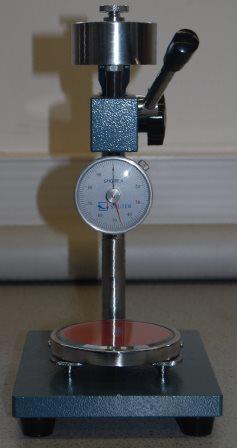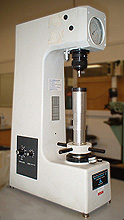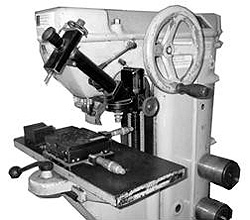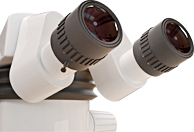Materials Hardness Testing
Laboratory’s Hardness Testing Capabilities
Materials can have different degrees of hardness and this can affect properties like friction and wear characteristics during use. The laboratory has a range of hardness testing instrumentation to evaluate metals, plastics, rubbers and certain coatings depending on their thickness.
Two types of hardness testing equipment for metals and alloys are available:-
- Vickers Hardness – A calibrated and maintained Vickers hardness tester using 1kg, 2.5kg, 5kg, 10kg, 20kg, 30kg and 50kg loads.
- Rockwell Hardness / Superficial Hardness Tester – A Buehler Macromet II Hardness tester is available fitted with either a standard 120 degree conical diamond indenter, or a one sixteenth or one eighth inch tungsten carbide ball indenter, the machine covers the Rockwell A, B, C, D, E, F, G, H and K standard ranges, and 45N, 30N, 15N, 45T, 30T, and 15T superficial ranges. (Larger diameter ball indenters are available for very soft materials).
- Vickers Microhardness - Hardness measurements on specific areas of a microstructure, plating layer, coating or surface treatment into the bulk using a Buehler Micromet II instrument.
Hardness testing can be used as a fast and cost effective alternative to tensile testing. A hardness test can be used to estimate the ultimate tensile strength UTS of steels. This approach is not valid for austenitic steels and non ferrous materials though.
For rubbers, plastics and some polymeric coatings two other tests are available:
- Shore A and Shore D durometers can be used for measuring the hardness of plastics and rubbers.
 |
 |
Typical Applications of Hardness Testing
- Measuring the hardness of tool steels
- Measuring the hardness of bearing materials
- Shore hardness for rubbers and plastics.
No documents matching criteria

